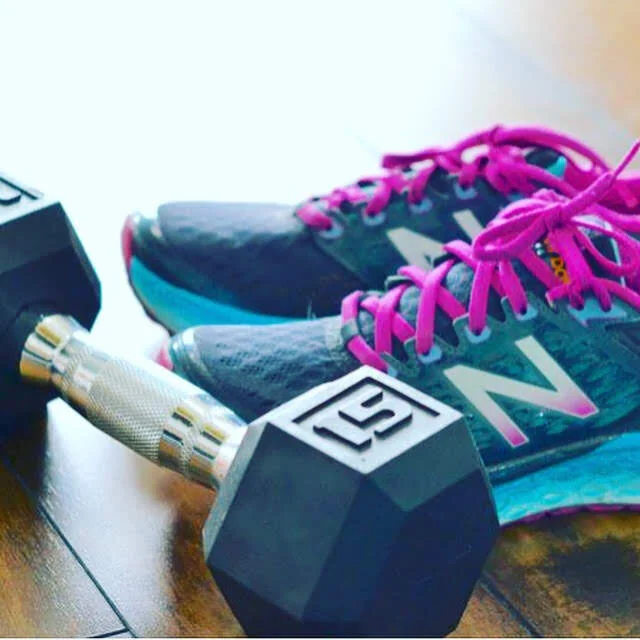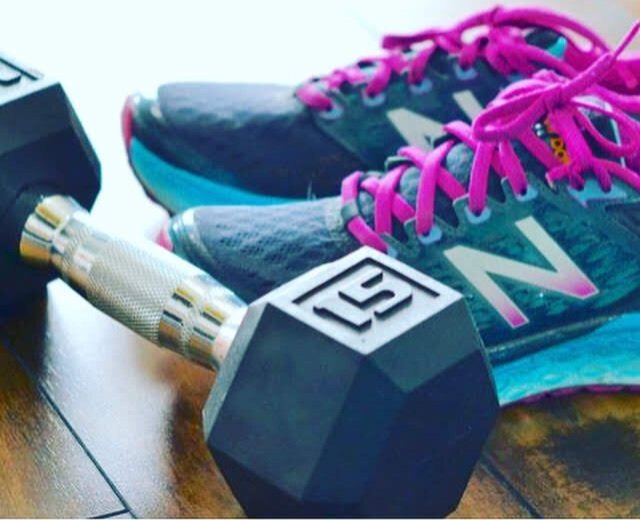Should You Start a Run Streak? When Should you Stop a Run Streak? Why I Stopped Streaking After 640 Days.
Run streak day 640 was the last day of my running streak. I call it my 'Rona run streak because I started it near the beginning of the shutdowns as a way to make sure I kept moving and stayed motivated during a time of high stress and rapidly changing schedules and environments.
What's a run streak? Don't worry; it doesn't have anything to do with not wearing clothing.
A person on a streak runs at least one mile a day for an extended period, maybe for a month, a season, a year, or more. There is a dude that's been streaking for over 52 years! In comparison, that makes my 640 days seem quite paltry.
Neither snow nor rain nor heat nor gloom of night stays these runners from their streak.
As a coach, run streaking is my "Do as I say, not as I do" speech to most clients. But I am not a total hypocrite; run streaks can be appropriate for some runners.
I am a firm believer in rest days and take them quite seriously in my training. In fitness, improvements happen during the recovery period, not during the workout. So if you don't allow time to recover, you don't improve (and you risk regression, burnout, or injury).
Even though I run streak, I honestly don't recommend it for most runners. So how do I reconcile my advice to other runners and my actions?
Run streaks can be safe and fun under the right circumstances, but there are a few standards and rules I recommend you follow before deciding to start a streak. Of course, there are exceptions to every rule; but I created these with safety and longevity in mind for the average runner. Some of these might not apply to you if you won the genetic lottery.
You must be an experienced runner with many months or years of consistent running. I never recommend run streaks for new runners; it's simply too risky.
It's best if you are currently running at least 15-20 miles per week and are willing to reduce your overall weekly volume at first as you start your streak. I recommend beginning with one mile a day for the first week and slowly adding a mile or two a week to your regular runs over the next few weeks to help your body adjust to the higher frequency. Starting with a lower weekly volume than usual can help avoid injury as your body adapts. Just adding more miles to your regular rest days is generally not a safe or effective way to start a streak.
You should be willing to run at least one or two (or more if needed) one mile days per week and run those days at a slower pace. These days are the recovery days for an experienced runner. One slow mile does not put a lot of additional stress on an experienced runner's body. Skipping these easy days can be detrimental to success for many runners.
It's best not to streak if you are a highly competitive runner or starting a full marathon (or longer) training cycle. High volume or high-intensity running needs more rest and recovery than lower volume and lower intensity workouts. In these scenarios, you could be sacrificing overall performance or risking injury by inserting a run streak into your training.
You must not get emotionally attached to the streak. I am the first to admit that this is challenging, especially after completing months or years of a daily streak. You must be willing to abandon the streak at any sign of injury, overtraining, or burnout. It doesn't serve any purpose to limp through a mile in pain for the sake of an arbitrary streak. You could cause more damage and worsen an injury if you ignore your body's pain signals.
You must be eating enough to fuel these workouts because undereating and run streaking together is a recipe for disaster. While macro percentage needs may look different for individual runners, most will do well with balanced carbohydrates, protein, and fat in their diets.
Runners who streak will be most successful if they can keep their life stress low and get at least eight hours of sleep per night. If this is not possible, it's probably best to streak when your life circumstances allow prioritizing sleep and stress management.
Runners with an obsessive, perfectionist or highly competitive personality are usually best off to skip the streaking. You know yourself and your tendencies better than anyone. A runner who would likely ignore the body's signals to stop to slow down or have a 'complete at any cost' mindset is better off not starting a streak in the first place.
I successfully streaked for 640 days. I ran through the rain, dark, cold, snow, and extreme heat. I ran on vacation and while traveling (which admittedly didn't happen a lot these last two years). I ran when it was inconvenient and didn't feel like it and when I was too tired. I ran on the street, on the trails, at the beach, and on my treadmill. Once I committed, I stuck with it. After a few months, it became harder not to run because I would think, "I don't want to do this today," but I also didn't want to stop the streak that day either, so the run always won.
I never got sick or dealt with any injuries during this time, as these events would have brought my streak to a halt.
So you may be wondering why did my streak end after 640 days?
My husband and I walked our two dogs on their leashes as we do in the mornings, and two loose dogs came at us aggressively. My husband tried to keep the three bigger dogs apart, and I held our smaller but muscular 40 lb dog back when his leash failed! I wrestled him on the ground to keep him away from getting involved with the dog fight. He was fighting me to join in the "fun," which was quite taxing. A car passing by saw the commotion and stopped and helped, and the owners of the aggressive dogs (finally) took them away.
No one, including the dogs, was seriously hurt; they just were worked up. We all walked away unscathed, so I thought.
We’re innocent!
Two days later, I started to feel some soreness in my left hip and a tightness in my left chest (a bruised rib, perhaps?) when breathing heavily, laughing or coughing. I reduced my running volume to one mile per day to keep the streak alive, but the soreness was not improving; it was getting worse. After the third day of drastically reduced miles, I knew my streak was over.
Remember my rule above? You can't get emotionally attached. Rest and recovery have to be my priority right now. As a coach, I think to myself, if my client told me this exact scenario and asked my advice, what would I tell them? REST! No questions. Not, "Try one more day and see how it feels." Not, "Just keep running one mile days and hope for the best." Certainly not to ignore pain. So I made the hard but necessary decision to stop the streak even if it wasn't what I wanted to do.
It's over. It was a good run (pun intended), but smart runners listen to their bodies and do what is best for longevity in the sport.
I'd be remiss as a coach not to follow my good advice. I'm trying to stay positive, allow myself to recover, reassess, and keep moving forward towards other goals.
After nearly two years of running at least a mile a day, maybe a break is what I didn't know I needed to shake up my training.
I've been contemplating what this means for my goals, progress, and future training. While it's my nature to catastrophize, I am working to take it one day at a time and do whatever I can to feel good and stay positive for today, I can’t spend too much energy worrying about what tomorrow will bring.
Sometimes life gives us what we need, but wrapped in a package we don't understand. I'm using this mindset to brainstorm ways to make the most of the downtime.
Wishing you health and happiness,
Lea
Did you like this post? Do you know someone who might benefit? It helps me when you share with your friends and followers on Facebook, Twitter, or Pinterest.

















Discover the 5 stages of fitness progression—from building the habit to optimizing your routine. Learn how to stay consistent, make progress at your own pace, and create a sustainable fitness lifestyle without the pressure of perfection.